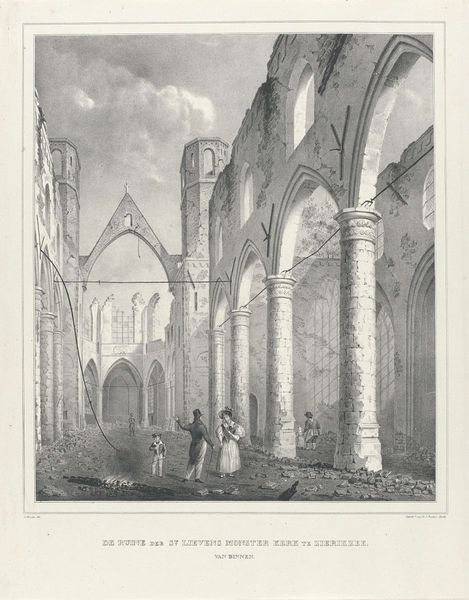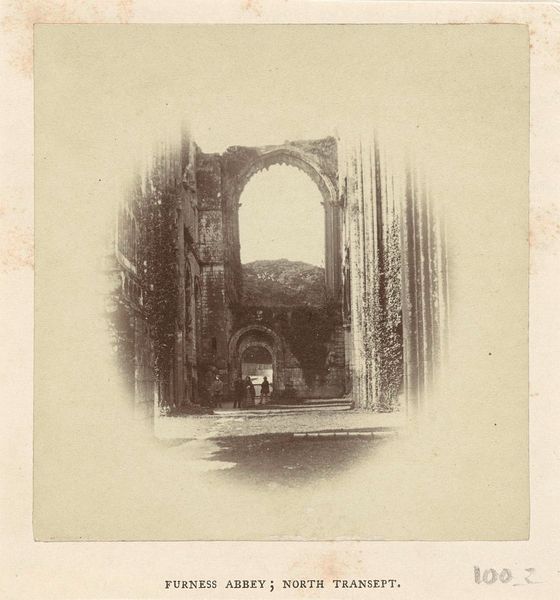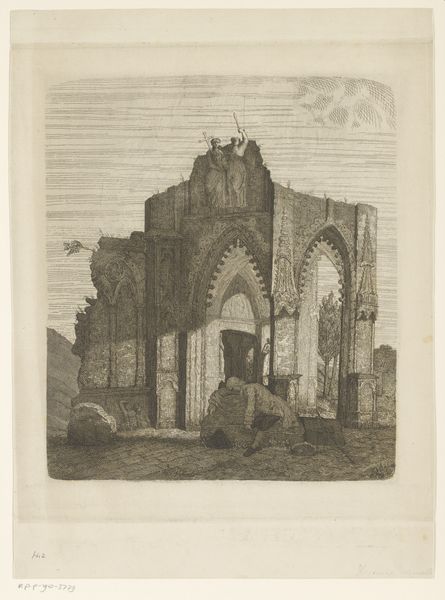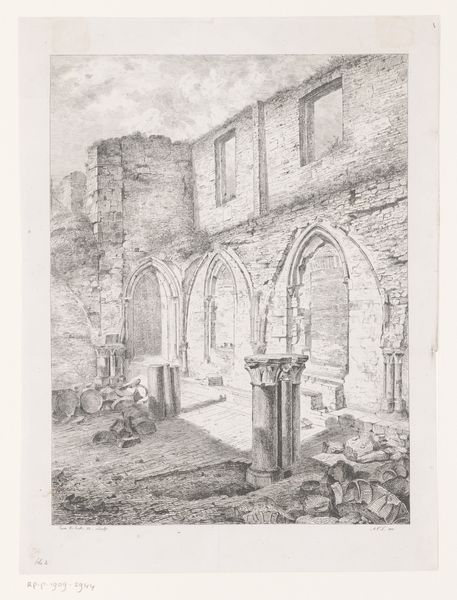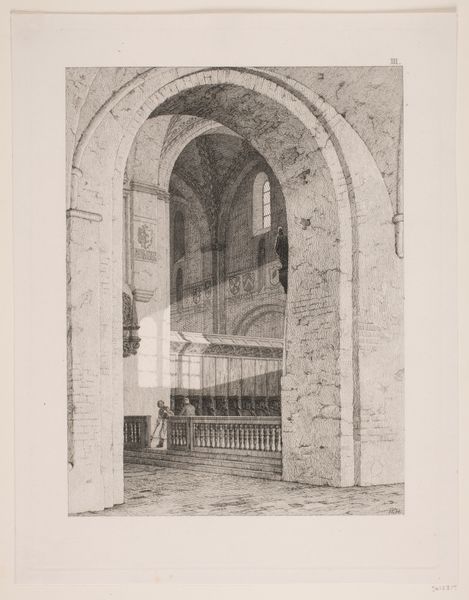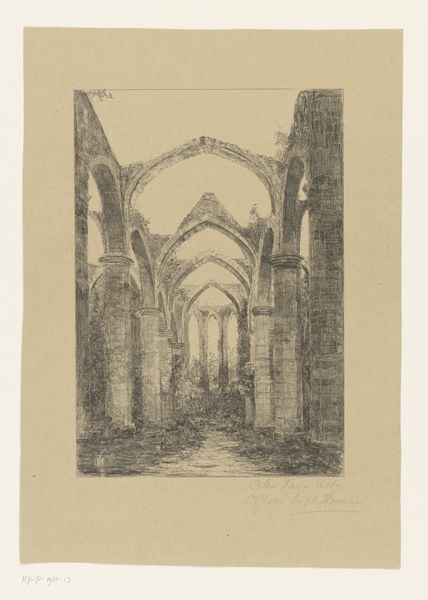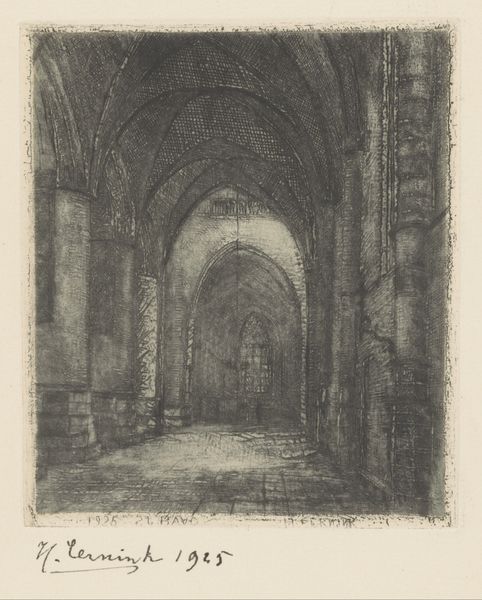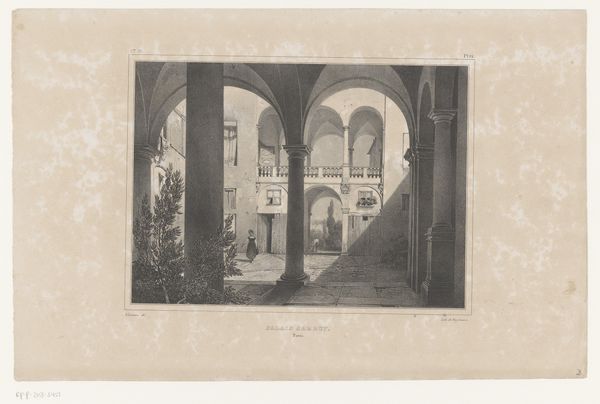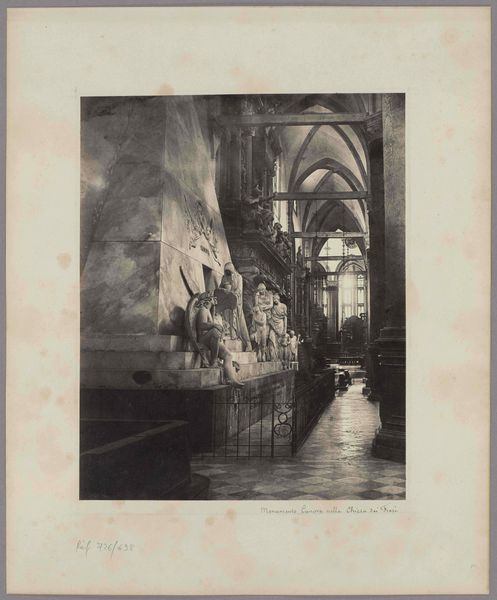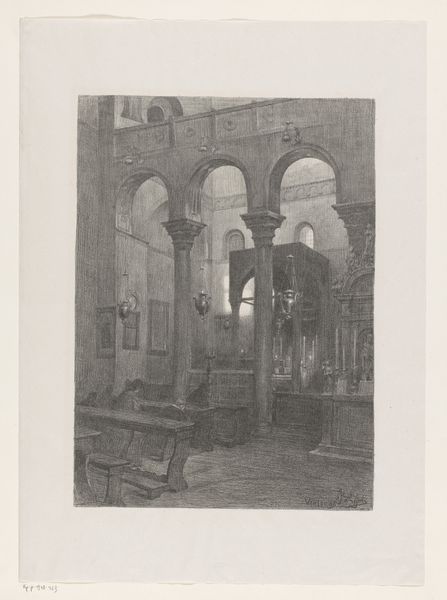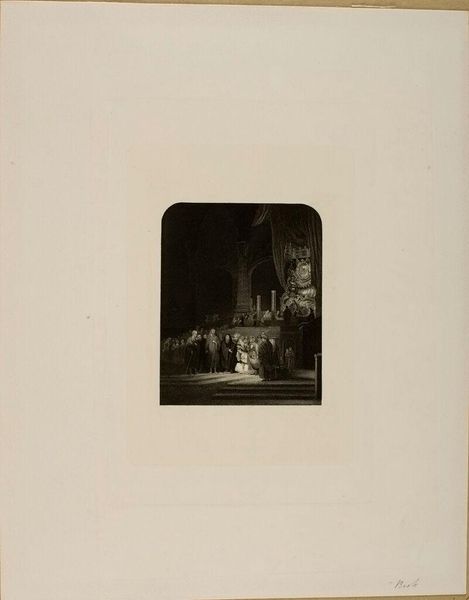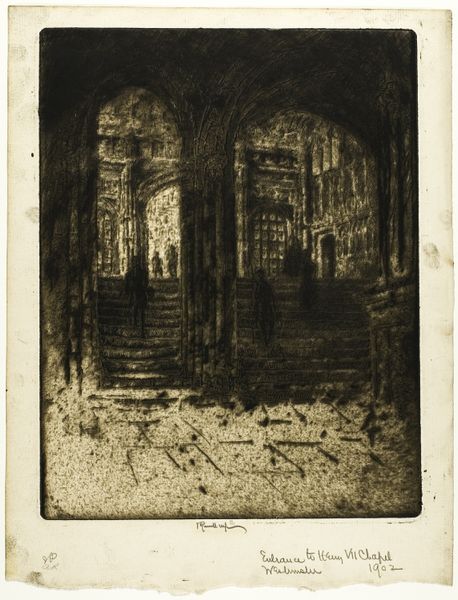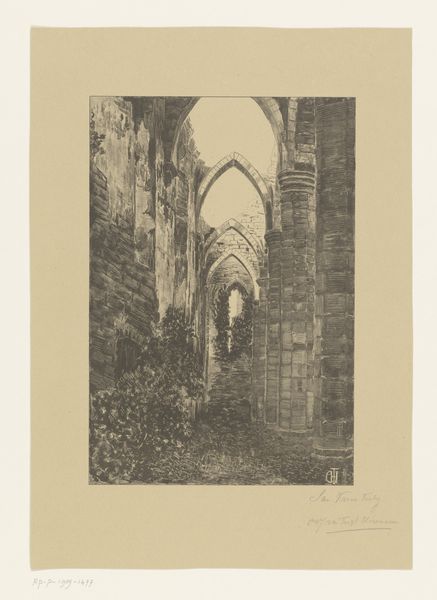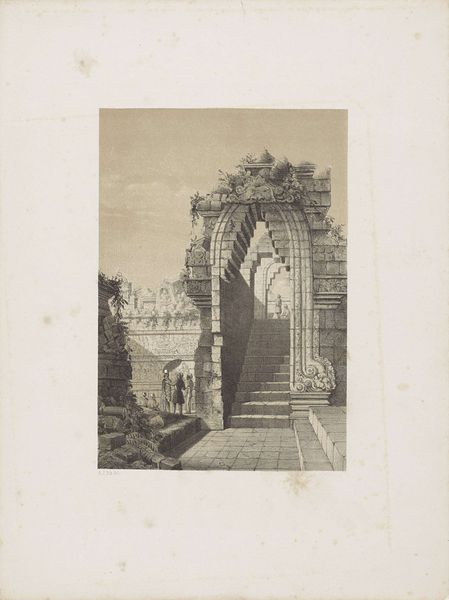
print, engraving
# print
#
landscape
#
romanticism
#
cityscape
#
history-painting
#
engraving
#
realism
Dimensions: height 616 mm, width 475 mm
Copyright: Rijks Museum: Open Domain
Paulus Jolly captured the Ruin of the Grote Kerk in Hoorn after the fire of 1838, using lithography, a printmaking process that relies on the qualities of stone. The image is all about materiality, or rather, the loss of it. Jolly meticulously renders the textures of the ravaged stone and charred wood, remnants of a devastating fire, evoking a palpable sense of decay. Lithography itself, with its reliance on the flat, porous surface of the stone, mirrors this sense of ruin. The artist would have drawn the scene onto the stone with a greasy crayon, then treated it with acid to fix the design, before finally inking and printing it. But beyond the depiction of physical destruction, the print suggests the socio-economic impact of the fire. The stark depiction of the ruined church is indicative of the labor, skill, and traditions that have been lost in its demise, a potent reminder of the social and economic fabric now in tatters. Considering this image through the lens of materials and making urges us to expand our understanding of art history, acknowledging the interplay between fine art, craft, labor, and the broader social context.
Comments
No comments
Be the first to comment and join the conversation on the ultimate creative platform.
